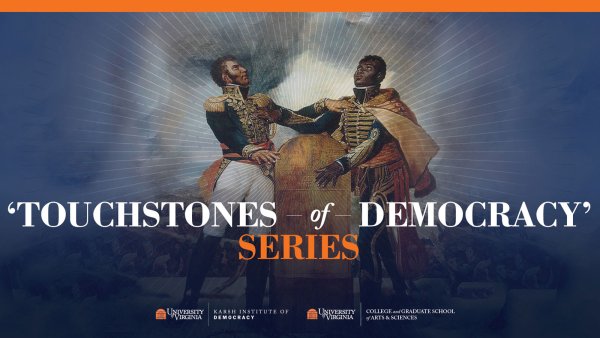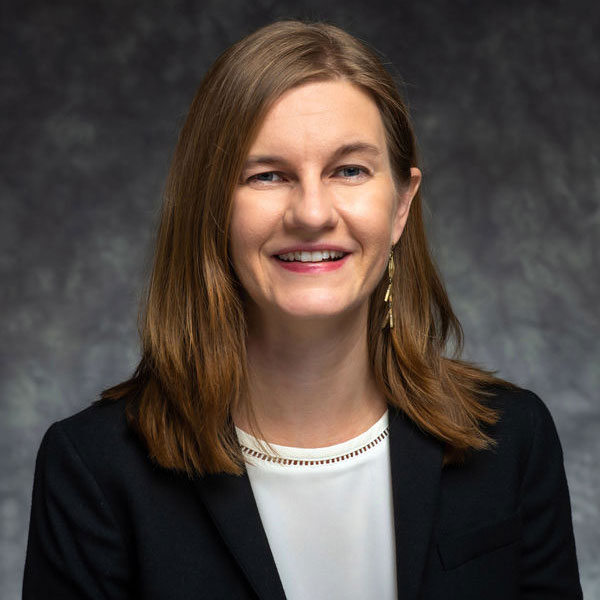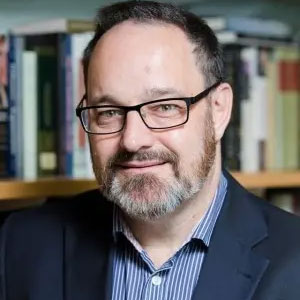Secrecy and Transparency in the Era of Revolutions
Katlyn Carter, Frank Cogliano

In a context where gaining public trust seemed to demand transparency, was secrecy ever legitimate during the French and American Revolutions? Whether in Philadelphia or Paris, establishing popular sovereignty required navigating between an ideological imperative to eradicate secrets from the state and a practical need to limit transparency in government.
Join us for a conversation with Katlyn Carter, assistant professor of history at the University of Notre Dame, on her new book Democracy in Darkness: Secrecy and Transparency in the Age of Revolution, which explores how the American and French revolutionaries who sought to fashion representative government confronted the dilemma of state secrecy. Carter shows how the fight shaped the nature of the world’s first representative democracies.
Carter discusses her book with Frank Cogliano, a historian of the Age of Revolution and author most recently of A Revolutionary Friendship: Washington, Jefferson, and the American Republic (February 2024), and interim Saunders Director of the International Center for Jefferson Studies at Monticello in Charlottesville, Virginia.
The Nau Lab's “Touchstones of Democracy” series explores key events, places, thinkers, and texts that inform the history and principles of democracy. The series is produced by the Karsh Institute of Democracy in partnership with the College and Graduate School of Arts & Sciences.
Speakers

Katlyn Carter
Assistant Professor of History, University of Notre Dame

Katlyn Carter
Assistant Professor of History, University of Notre Dame
Katlyn Carter is a political and intellectual historian of the 18th-century Atlantic World, specializing in the American and French Revolutions. Her research focuses on the origins of modern representative democracy through the study of political practices and institutions.
Her first book, Democracy in Darkness: Secrecy and Transparency in the Age of Revolutions (Yale University Press), explores how decisions and debates about the place of secrecy in politics during the Age of Revolutions shaped representative democracy. She has published in the Journal of the Early Republic and French History. Additionally, she has written numerous op-eds for The Washington Post, TIME, and the Age of Revolutions blog, for which she serves as an editor.
Her next book, tentatively titled The Politics of Truth in the Early American Republic, will provide a political history of truth in early America through an examination of the various methods people adopted to try to promote it—from the development of stenography, to the regulation of the press, and even the circulation of rumors. By tracing how people thought and talked about truth, her research will build a bottom-up intellectual history aimed at providing context to pressing questions in contemporary democracies, including: how do we arrive at truth in a democracy and how do we determine who to trust in seeking it?

Frank Cogliano
Professor of American History, University of Edinburgh

Frank Cogliano
Professor of American History, University of Edinburgh
Frank Cogliano is professor of American history at the University of Edinburgh, where he serves as the University’s Dean International (North America). Currently, he serves as the interim Saunders Director of the International Center for Jefferson Studies at Monticello. A specialist in the history of the American Revolution and the early United States, he is the author or editor of nine books. In February 2024, Harvard University Press will publish Revolutionary Friendship: Washington, Jefferson, and the American Republic. Along with Patrick Griffin, Christa Dierksheide, and Eliga Gould, he edits the Revolutionary Age series for the University of Virginia Press.
Cogliano is committed to engaging a wide audience with the study of history. He co-hosts the American history podcast "The Whiskey Rebellion" and has made numerous media appearances, commenting on U.S. history, politics, and international relations for the BBC and other outlets. He has made multiple appearances on the BBC’s flagship In Our Time series.